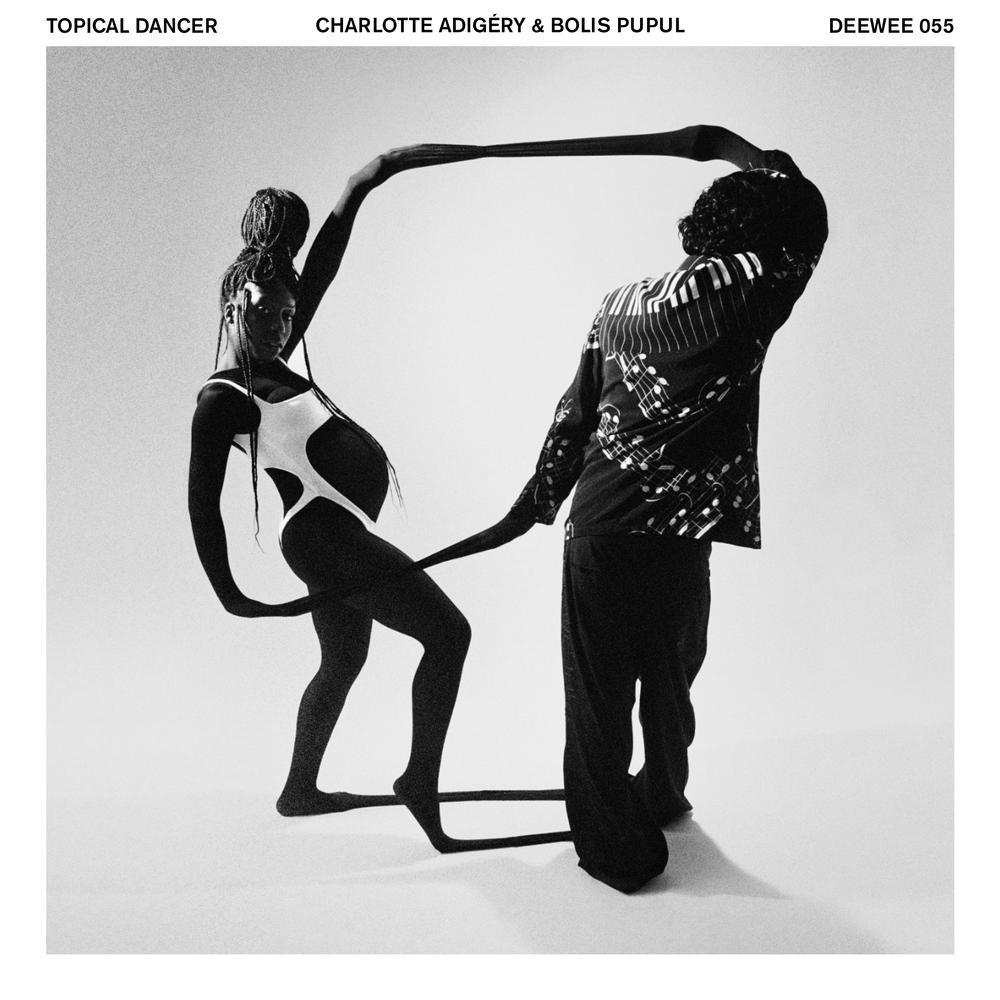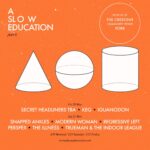“Siri, can you tell me where I belong? Go back to the country where you belong. Siri can you tell if the road is long?” If the civilisation that walk the earth 100 years from now wanted to find out what life was like in the decade of the 2020s, listening to the debut album of Belgium-dwelling duo Charlotte Adigéry and frequent collaborator Bolis Pupul would provide a good reflection of what thoughts this particular and peculiar generation were preoccupied with. Topical Dancer – as the name hints at – is a refreshingly humorous and sarcastic commentary on both light and heavy subjects, intertwined with zeitgeist pop culture references and a creative approach to language, while made even more enjoyable by their unique, playful and danceable take on electro.
With Charlotte Adigéry having a mix of Nigerian, Martinican and Guadeloupean descent, and Bolis Pupul having a Chinese background, they have good perspective on what it is like to occasionally be seen as outsiders in a European country. ‘Blenda’ tackles the confused mindset of expats. As Adigéry is a mixed heritage third culture kid (Born in France, grew up in Belgium, of African appearance), it sounds like a biographical take on how she finds it hard to be accepted by any community, when singing: “I look like them, but not to them. I sound like you, but not to you. Don’t sound like what I look like. Don’t look like what I sound like.” Our reliance on virtual assistances for answers is captured well when she asks Siri for help before pleading to her mother in both French and Haitian Creole. Opening track ‘Bel DEEWEE’ is also rather funny in its reflection of language confusion and how can hinder an aspect of 2020’s routine: the food delivery app. Adigéry is answering an intercom request in French but the Deliveroo courier is speaking in Dutch. Translated as: “You’re talking to me, ma’am, just open the door.”
Named after a language, ‘Esperanto’ is both a helpful and comical take on political correctness. The song’s protagonist offers advice to people who fear they are not politically correct enough. From complimenting women (“Don’t say ‘nice pair’, say ‘I love the symmetry of you'”) to asking about one’s heritage (“Don’t say ‘but where are you really from?’, say ‘I don’t see colour'”). Adigéry acknowledges that PC can go a bit too far and jokingly offers this comment: “Don’t say, ‘I’d like a black Americano, say ‘I’ll have an African American please’.” The song has an engrossing blend of 80s electro drum machine, beat-box humming, Asian instruments and the malfunctioning voice effects used by Sevdaliza (also heard on the purposefully perplexing ‘Making Sense Stop’). Adigéry isn’t launching a scathing attack on subjects, she comments with a sense of light-hearted curiosity and if on ‘Esperanto’ she sounds like she is on the brink of giggling, on ‘HAHA’ she is completely laughing. The experimental track is just Adigéry’s own recorded laughter looped and mixed with the aura of Harold Faltermeyer (in particular Axel F) style soundtrack. Sometimes you just gotta laugh at the ridiculousness of the decade, and this song encourages this form of cathartic release.
Charlotte Adigéry’s most extreme examples of sarcasm are on the ironically-titled ‘Ceci N’est Pas Un Cliché and ‘Thank You’. The inventive former, which translates from French as ‘This is not a cliche’, pokes fun at the formulaic songwriting of chart music. A compilation of common lyrics such as: “Hey Mister DJ”, “I throw my hands up in the air, and I wave ‘em like I just don’t care“, “You’re cold as ice” and most hilariously: “So I went from hero to 7 6 5 4 3 2 1 – 0″. Ending the funky bass disco track with a line that points out the track’s premise: “I bet this song sounds real familiar.”
If you think that ‘Thank You‘ could be saccharine closing tribute to her fans, it’s actually the opposite. It’s a passive aggressive response to comments made about her creativity and appearance from social media, possibly made by so-called fans, hype bloggers and promoters. She even goes as far as to calling them “the Columbus to my America” for putting her on the music map. Other reactions include: ” Yeah, you’re right, this doesn’t look good on me. And maybe I should ditch the blonde wig, and “Exposure shouldn’t have a price, right? ‘Cause money doesn’t rhyme with creativity.” “Thank You” is effectively repeated in a dreamy doo-wop backing style behind Charlotte Adigéry’s mockery and woozy electro house beat.
Away from the straight out humour Topical Dancer also has some thought-provoking moments. ‘It Hit Me’ explains the point of view of a teenage girl being wolf-whistled at for the first time and as a consequence discovering the awkward feeling of being objectified. The ball-bouncing effect during the chorus is clever. Furthermore the soothing R&B track ‘Reappropriate’ is about women cleansing themselves from bad physical situations and claiming back ownership of their bodies. ‘Ich Mwen’ is also a noteworthy track, that’s both in French and the Creole language, because it features Charlotte’s mother Christiane Adigéry providing motherhood advice. As shown in the album’s cover, her daughter was pregnant when making the album.
If you want to laugh, dance and have some mental food for thought at the end of it, buy/stream/download (or whatever kids do) Charlotte Adigéry and Bolis Pupi’s critiquing guide on an all-too-confusing decade.




